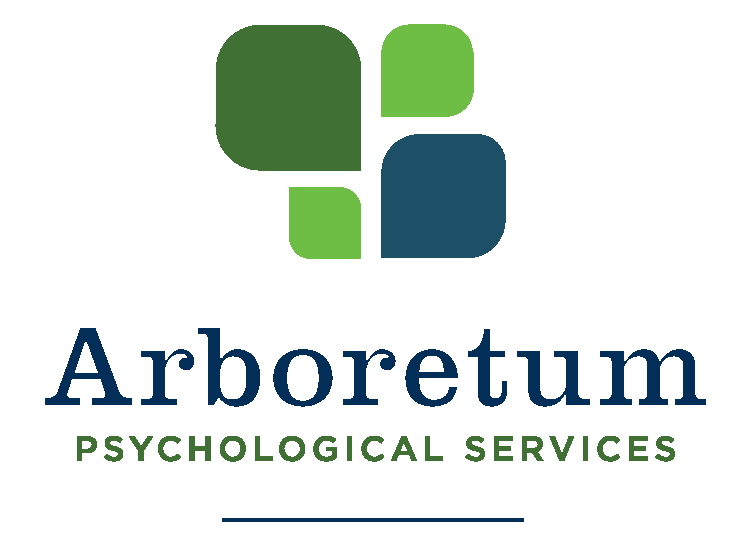Services Provided:
Please inquire with the psychologist to whom you have been referred about the specific services she provides. If you are seeking a service she does not provide, she can assist you with referral recommendations to other providers.
Psychological AND Comprehensive Learning Evaluations
Intellectual assessment including giftedness testing for independent school entrance and appeals for advanced learning programs in public schools
Learning assessment including assessment for specific learning issues in reading (Dyslexia), written language (Dysgraphia), and mathematics (Dyscalculia)
Assessment of attention and executive functioning issues including subtypes of Attention Deficit Hyperactivity Disorder (ADHD)
Assessment of anxiety, mood, social, and behavioral issues
Therapy Services
Anxiety Disorders
Depression and other Mood Disorders
Stress Management
Social Issues
Family and Relationship Issues
Emotion Regulation
Adjustment Issues (i.e., life transitions, divorce, grief/loss)
Launching to Adulthood
Attention & Executive Functioning Issues
Chronic Medical Conditions
Parenting Consultation
Trauma
YUMI HIRAGA, PH.D.
Dr. Yumi Hiraga is a licensed psychologist who provides psychological services to children, adolescents, young adults, and parents. Her areas of specialty include:
Comprehensive Learning and Psychological
Assessments and Consultation
Reading, Written Language, and Math
Attention and Executive Functioning
Memory and Learning
Anxiety and Mood
Social issues
Gifted Testing
Private School Admissions
Advanced Learning Appeals Testing for Seattle Public Schools
Therapy
Anxiety and Obsessive Compulsive Disorder
Depression
Stress Management
Emotion Regulation
Social Issues
Family and Relationship Issues
Adjustment Issues
Transitioning/launching to adulthood
Background and Training:
Dr. Yumi Hiraga received her bachelor’s degree in Psychology from Harvard University and her doctorate in Child Clinical Psychology from the University of Washington. She completed her pre-doctoral internship at Schneider Children’s Hospital in New York and a postdoctoral fellowship in Pediatric Psychology/Neuropsychology at Seattle Children’s Hospital.
Dr. Hiraga was the founder and director of the LEARN Clinic at the University of Washington. She currently is on the Clinical Psychology Faculty at the University of Washington where she provides training to doctoral students.
Payment and Insurance
Dr. Hiraga is an out-of-network provider and does not contract with any insurance. Payment is due at the time of service and is billed electronically via credit card or health savings account card. It is each patient’s responsibility to inquire with their insurance about their out-of-network benefits so that they know what to expect upon submission of insurance claim forms.
Contact Information
Phone: 206-729-2829, ext 1
Email: drhiraga@arboretumpsych.com
ANGELA HUNGELMANN, PH.D.
Dr. Angela Hungelmann is a licensed psychologist who provides psychological services to school-age children, adolescents, young adults, and parents. Areas of specialty include:
Learning and Psychological Assessments
Academic achievement in reading, written language and mathematics
Attention issues
Expressive and receptive language
Memory, executive functioning, and processing speed
Social issues
Mood, depression, and anxiety
Impact of temperament on learning
Therapy
Anxiety
Depression
Mood Disorders
Emotion Regulation
Social Issues
Adjustment Issues
Family Issues
Launching to Adulthood
Background and Training
Dr. Hungelmann received her Bachelor of Arts (B.A.) from The College of Saint Benedict/Saint John’s University in Minnesota with a Major in Psychology. During college, Dr. Hungelmann completed a National Institutes of Health (NIH) research fellowship at the Institute of Child Development at the University of Minnesota, further solidifying her commitment to working with children and adolescents.
Dr. Hungelmann received both her Master of Science (M.S.) and Doctor of Philosophy (Ph.D.) in School/Pediatric Psychology with a specialization in Pediatric Neuropsychology from the University of Utah. She completed a predoctoral internship in Child Clinical and Pediatric Psychology/Neuropsychology at Primary Children’s Medical Center in Salt Lake City. Dr. Hungelmann then completed a postdoctoral fellowship in Pediatric Psychology/Neuropsychology at Seattle Children’s Hospital. She has had extensive training in neuropsychological and learning assessments and cognitive behavioral therapy with children and adolescents.
Dr. Hungelmann provides all evaluation services in person. Therapy services are also in person unless telehealth is requested.
Dr. Hungelmann served as an Attending Pediatric Psychologist on the Rehabilitation Medicine Service at Seattle Children’s Hospital and as a Clinical Assistant Professor in the Department of Rehabilitation Medicine at the University of Washington before beginning her private practice in 2004. Her specialty areas of assessment include learning disabilities (including Dyslexia, Dysgraphia, and Dyscalculia) and Attention Deficit Hyperactivity Disorder (ADHD). Dr. Hungelmann has a particular therapeutic specialty of working with adolescents and young adults using cognitive behavioral therapy (CBT).
Payment and Insurance
Dr. Hungelmann is an out-of-network provider and does not contract with any insurance. Payment is due at the time of service and is billed electronically via credit card or health savings account card. Dr. Hungelmann provides insurance receipts to families who wish to submit claims for insurance reimbursement. It is each patient’s responsibility to inquire with their insurance about their out-of-network benefits so that they know what to expect upon submission of insurance claim forms.
LINKS
Contact Information
Email: drhungelmann@arboretumpsych.com
Please note that due to the very high volume of new referrals I receive, I am no longer able to maintain a voicemail. I do, however, respond to all emails and am happy to help with referrals to other providers given my very full practice. Thank you!
What Can I Expect in Therapy?
Although each psychologist at
Arboretum Psychological Services is
independent and solely responsible
for the care provided, there are
some general approaches common
to each of our practices.
The process of treatment begins with an intake during which you discuss your concerns, goals for therapy, and treatment recommendations. Although the intake process can sometimes span several sessions, a sense of fit with the provider is usually evident early in the process.
When working with children, parents are involved in at least some of the therapeutic work. The psychologist may include you in some or all of the sessions with your child. Periodic parent-only sessions are often included in order to revisit therapy goals, assess progress, and target parenting skills.
When working with adolescents, it is common for most sessions to be spent exclusively with the teen. However, even when working with teens, parent involvement can be critical in order to support therapy goals, improve parent-teen communication, and reduce conflict.
Each psychologist has her own unique set of skills, education, and training. The types of therapy techniques employed by a psychologist vary depending on the referral issues, level of engagement and motivation of the client, and treatment goals.
Therapy has the potential to yield many positive outcomes, such as improved relationships, relief from distressing symptoms, improved emotion regulation and coping skills, and better school performance. Your child may need to complete “homework” outside the therapy office between sessions in order to optimize therapy success.
Parents often ask how they can prepare their child for a testing or evaluation appointment. While each child is different and there are many different reasons for an evaluation, there are a few general guidelines that can be helpful.
Information
Regarding
Assessment
Try to ensure that your child is well rested and fed prior to the appointment. If your child is ill, please talk to your provider to discuss whether to reschedule. Leave plenty of time to allow for traffic and parking to avoid your child feeling rushed on arrival.
For younger children, you might explain that they are going to be doing some “learning” activities. Steer away from promises of “games.”
With older children who have a greater understanding as to the purpose of the evaluation, explain that they will be working with someone to help understand how they think and learn in order to make good decisions about a school placement or support them in becoming the best learner they can be.
We are experienced in working with children with a wide range of temperaments and needs. We emphasize putting your child at ease and making the experience as positive as possible.
Please bring in copies (not originals) of prior evaluations, report cards, tutoring reports, and school-wide standardized testing.
The decision as to whether to remain in the waiting room during the evaluation depends on your child’s age, developmental level, temperament, and the comfort level of you and your child. Please feel free to discuss the specifics of this further with your provider.

When is a Psychoeducational/Learning
Assessment Helpful?
Parents might consider a comprehensive PSYCHOEDUCATIONAL/learning assessment IF their child:
Resists learning to read or reading for pleasure
Has difficulty organizing materials, tracking assignments, or remembering to turn in homework
Struggles to organize long term projects and essays and often waits until the last minute to start them
Takes much longer than peers to complete homework
Requires significant parental help or supervision to complete homework
Has trouble with rote memory and automatic recall (e.g. math fact automaticity)
Struggles as expectations for organization and independence at school increase (i.e. 3rd grade, middle school, high school)
Has trouble getting thoughts and ideas into writing
Does well on homework assignments but performs poorly on tests
Appears bright and works hard yet grades do not match effort
Makes self-deprecating comments about abilities (i.e., “I’m stupid or “I’m the worst reader in the class”)








